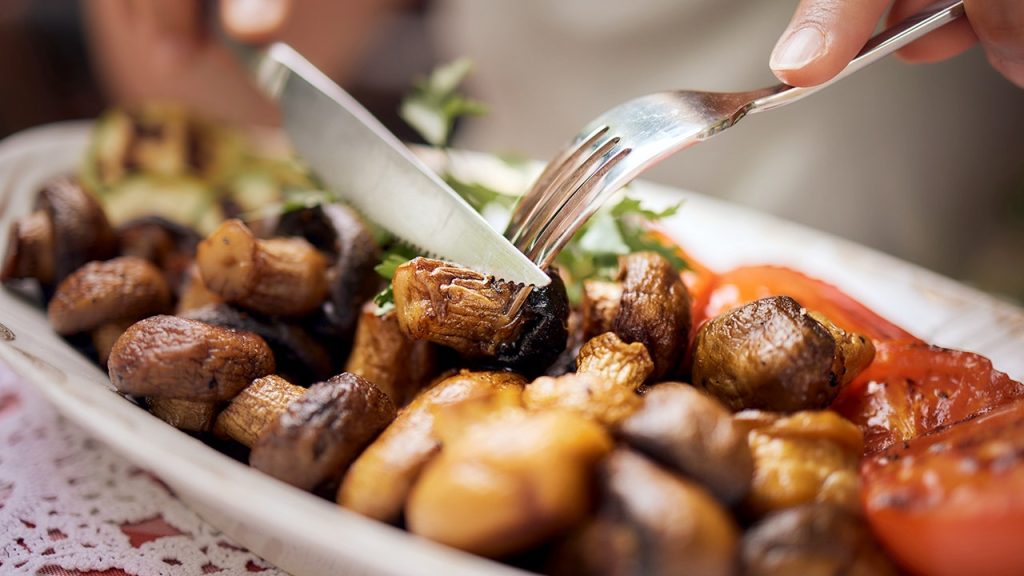The Latest Food Trends and Health Insights
In a fascinating new development for health-conscious foodies, recent research has uncovered promising evidence that mushrooms may significantly benefit heart health. These humble fungi, long appreciated for their culinary versatility, are now being recognized for containing compounds that could help reduce cardiovascular risks. Scientists have identified specific bioactive components in various mushroom species that appear to help lower cholesterol levels, reduce inflammation, and improve overall heart function. This discovery adds to the growing body of evidence supporting the inclusion of more plant-based foods in our diets, with mushrooms potentially earning a special place in heart-healthy eating plans. Whether incorporated into everyday meals or taken as supplements, mushrooms may soon become a recommended addition to heart health regimens alongside traditional recommendations like exercise and reducing sodium intake.
The restaurant industry is experiencing significant growing pains as consumer expectations evolve, according to one outspoken celebrity chef who recently spoke with Fox News Digital. The chef emphasized that a “return to restaurant culture” requires diners to become more proactive in holding establishments accountable for their menu offerings. This isn’t just about complaining when something isn’t right—it’s about creating a dialogue between patrons and restaurants that fosters authenticity, quality, and transparency. The chef pointed out that as food costs rise and establishments face staffing challenges, some venues have quietly cut corners on ingredients or preparation methods without adjusting their marketing or pricing. Informed consumers who ask questions about sourcing, preparation techniques, and ingredient quality can help reverse this trend by rewarding restaurants that maintain high standards while avoiding those that don’t meet expectations.
Thanksgiving celebrations are undergoing a notable transformation as younger Americans increasingly embrace alcohol-free alternatives at holiday gatherings. This “dry revolution” has seen mocktails—sophisticated non-alcoholic beverages featuring complex flavors, artisanal ingredients, and elegant presentations—taking center stage on many holiday tables. The trend reflects broader social shifts including greater awareness of alcohol’s health impacts, the desire for more inclusive gatherings that accommodate non-drinkers, and a growing market of high-quality alcohol alternatives that don’t feel like compromises. Creative hosts are developing signature holiday mocktails with seasonal ingredients like cranberry, cinnamon, and apple that provide festive options for all guests. However, this shift hasn’t occurred without pushback from traditionalists who view holiday drinking as an essential cultural ritual and worry about losing this aspect of celebration and connection.
For home cooks tackling the centerpiece of Thanksgiving dinner, experts have distilled turkey preparation into three foolproof methods accompanied by valuable time-saving tips. The first approach involves brining—soaking the bird in a salt solution before cooking to enhance moisture and flavor, with variations including dry brining for those short on refrigerator space. The second method focuses on perfect roasting techniques, including starting with a room-temperature bird, strategic butter placement under the skin, and the crucial step of allowing the turkey to rest before carving. The third option embraces alternative cooking methods like spatchcocking (removing the backbone to flatten the bird), which dramatically reduces cooking time while ensuring even doneness. Accompanying time-saving recommendations include preparing components in advance, delegating side dishes to guests, and investing in an accurate meat thermometer to eliminate guesswork about when the turkey is perfectly cooked.
Coffee lovers might need to reconsider their instant coffee habits following concerning findings from a new scientific study linking this convenient brew to increased risk of macular degeneration—a leading cause of vision loss. The research specifically highlights potential dangers for younger consumers who regularly consume instant coffee products, suggesting that compounds formed during the processing of instant coffee may accumulate over time and potentially damage the macula, a critical part of the retina responsible for central vision. While traditional brewed coffee didn’t show the same correlation in the study, instant varieties—which undergo additional processing including freeze-drying or spray-drying—contained higher levels of certain chemical compounds associated with oxidative stress in eye tissues. Eye health specialists caution that while more research is needed to establish definitive causation, the findings warrant consideration, especially for individuals with family histories of eye diseases or other risk factors for macular degeneration.
The evolving landscape of food and drink trends reveals Americans’ complex relationship with consumption—balancing health concerns, tradition, and pleasure in fascinating ways. As we learn more about how mushrooms might protect our hearts and consider the potential risks of convenience foods like instant coffee, we’re becoming increasingly thoughtful about what we put into our bodies. Simultaneously, cultural shifts like the mocktail movement demonstrate changing attitudes toward substances once considered essential for celebration, while conversations about restaurant accountability highlight our desire for authentic, quality experiences. Even traditional practices like preparing Thanksgiving turkey continue to evolve as we seek both perfect results and practical efficiency. These developments reflect a society increasingly focused on making informed choices about food and drink—weighing health implications, cultural significance, and personal enjoyment in the pursuit of better living through more mindful consumption habits.













